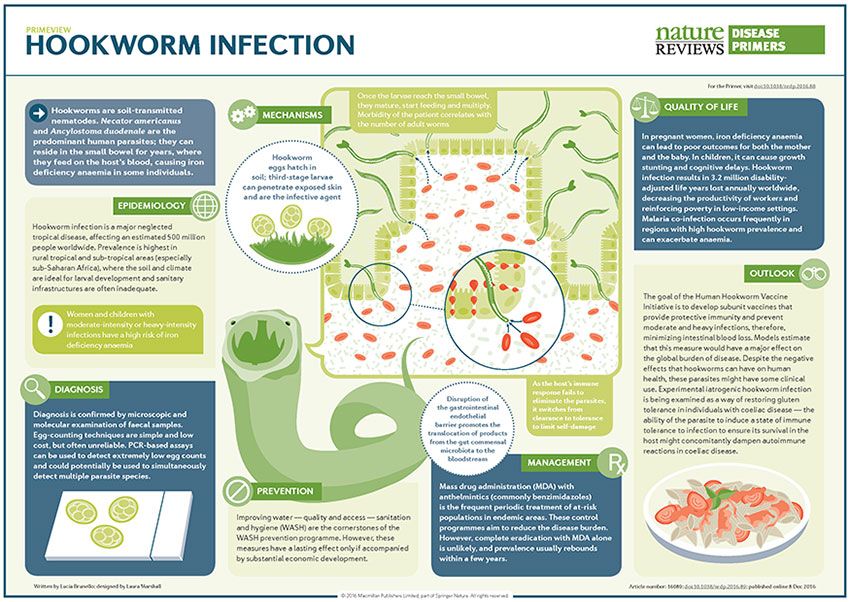
Jeffrey M. Bethony, Ph.D., professor, and David Diemert, M.D., associate professor, both in the Department of Microbiology, Immunology, and Tropical Medicine at the George Washington University (GW) School of Medicine and Health Sciences, served as co-authors on a review on hookworm infection published in Nature Reviews: Disease Primers.
The article will serve as reference resource for experienced researchers and a useful broad introduction to the field for early career researchers and medical students.
“This is the most comprehensive review of this neglected tropical disease since our previous publication in the Lancet in 2006 and includes authors from all over the world,” said Bethony.
According to the review, hookworms are soil-transmitted nematode parasites that can reside for many years in the small intestine of human hosts. Adult worms feed on the blood of a host and can cause iron deficiency anemia, especially in high-risk populations (children and women of childbearing age). Almost 500 million people in developing tropical countries are infected, and simulation models estimate that hookworm infection is responsible for about 4 million disability-adjusted life years lost annually. Humans mount an immune response to hookworms, but it is mostly unsuccessful at removing them. Accordingly, the host switches to an immune-tolerant state that enables hookworms to reside in the gut for many years. Although anthelmintic drugs are available and widely used, their efficacy varies and the drugs do not prevent reinfection. Thus, other control strategies aimed at improving water quality, sanitation, and hygiene are needed. In addition, efforts are underway to develop a human hookworm vaccine through public-private partnerships. This includes current efforts at GW by Bethony and Diemert to establish a controlled human hookworm infection model.
Recent research has found that hookworms could also be a resource. Hookworms have the capability to regulate the host’s inflammation, and researchers are experimentally infecting patients to treat some inflammatory diseases as an approach to discover new anti-inflammatory molecules. This area of endeavor might well yield new biotherapeutics for autoimmune and allergic diseases.
“Hookworm Infection” is published in Nature Reviews: Disease Primers.


